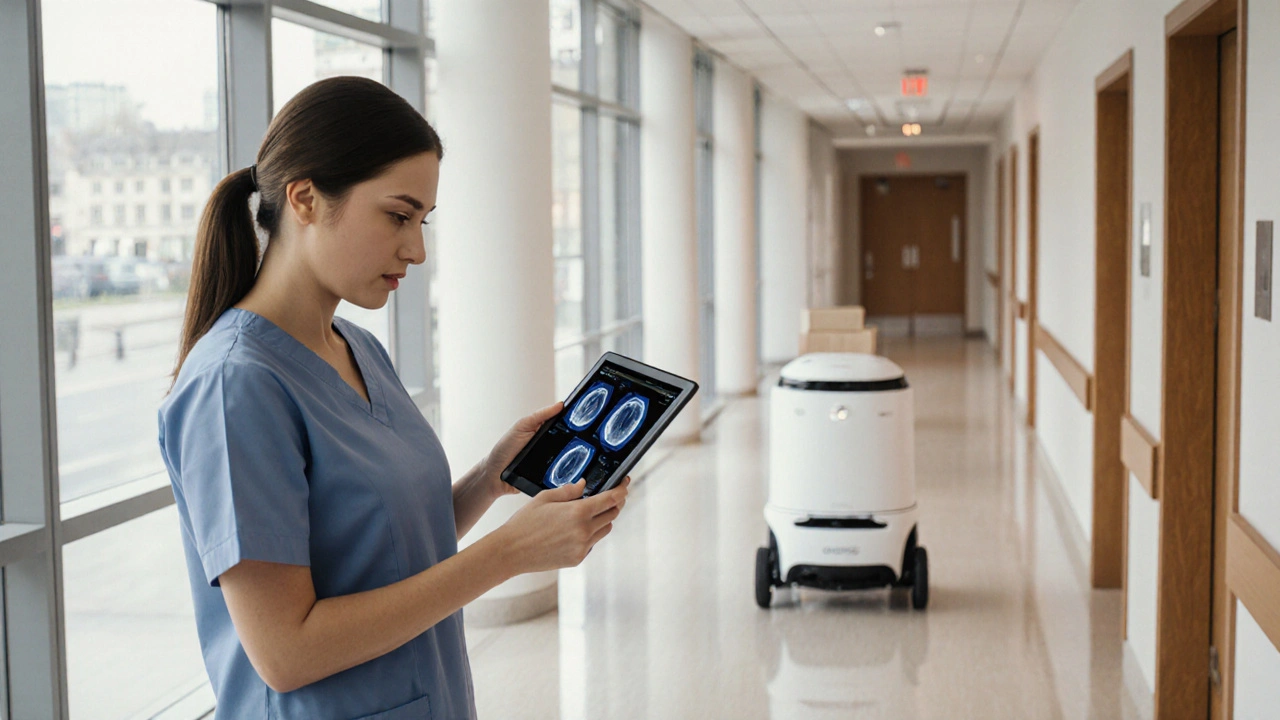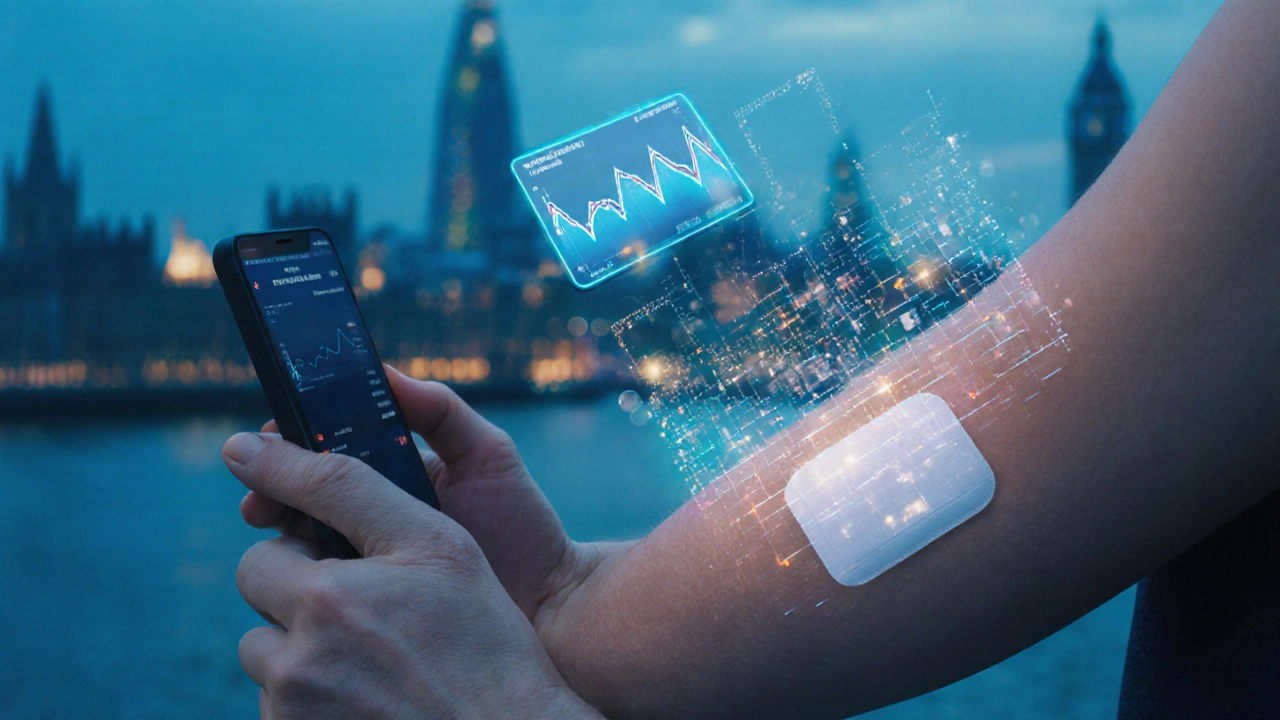
London isn’t just about the Tube and tea. It’s quietly becoming one of the world’s hottest hubs for HealthTech innovation. While Silicon Valley grabs headlines, London’s startups are solving real problems-faster, cheaper, and with more empathy. From AI that spots cancer before symptoms appear to apps that help diabetics avoid hospital visits, these companies aren’t just tech projects. They’re saving lives.
How London’s HealthTech Scene Got So Strong
It didn’t happen by accident. The NHS, with its 1.3 million staff and 70 million patients, is a massive testing ground. Startups don’t need to guess what hospitals need-they can walk into a clinic and see the bottlenecks firsthand. Add in world-class universities like Imperial College London and UCL, plus access to venture capital from firms like Octopus Ventures and Index Ventures, and you’ve got the perfect storm.
Unlike other cities where startups chase flashy apps, London’s best HealthTech companies focus on integration. They build tools that work inside the NHS system, not around it. That means less friction, faster adoption, and real impact. A 2024 report from the British Medical Association found that NHS trusts using London-developed digital tools reduced patient wait times by an average of 38% in outpatient departments.
AI That Sees What Doctors Miss
One of the most powerful tools emerging from London is AI-powered diagnostic imaging. Companies like Butterfly Network (UK branch) and Arterys (partnering with King’s College Hospital) are training algorithms to detect early signs of stroke, lung cancer, and heart disease from standard X-rays and MRIs. These systems don’t replace radiologists-they give them superpowers.
Take DeepMind Health, now part of Google Health but still operating out of London. Their algorithm for detecting acute kidney injury can warn clinicians 48 hours before a patient’s blood tests show trouble. That’s two full days to intervene. In a 2023 trial across five London hospitals, the tool cut ICU admissions for kidney failure by 22%.
Chronic Disease Management, Simplified
Diabetes, COPD, and heart failure don’t make headlines-but they account for 70% of NHS spending. London startups are tackling this head-on with remote monitoring. Olive Health, founded in 2021, gives Type 2 diabetics a wearable glucose patch that syncs with a simple app. No finger pricks. No clinic visits. Just alerts when levels dip or spike.
The results? Patients using Olive Health reduced HbA1c levels by an average of 1.4% in six months-better than most medication-only regimens. And the NHS saved £1,200 per patient in avoided hospitalizations over the same period.
Another standout is MyTherapy, which uses behavioral science to help patients stick to their meds. Instead of push notifications, it uses personalized voice messages from real clinicians. In a trial with 12,000 users across London, adherence jumped from 58% to 89%.

Telehealth That Actually Works
Everyone talks about telehealth, but most platforms are just video calls with bad UX. London’s Push Doctor and Babylon Health (still operating despite past setbacks) have rebuilt the model from the ground up. Push Doctor uses AI triage to match patients with the right clinician in under 90 seconds. If you’re feeling chest pain, you don’t get a nurse-you get a GP who can order an ECG and send it to a cardiologist before your call ends.
They also integrate with GP records. No more repeating your history. No more lost referrals. In 2024, Push Doctor handled 2.1 million consultations-40% of them for patients who’d never seen a GP in person before. That’s not convenience. That’s access.
Mental Health, Digitally Rethought
Mental health services in the UK are stretched thin. Waiting lists for CBT can hit six months. London’s StepChange and Big Health are changing that. Big Health’s Daylight app delivers cognitive behavioral therapy for anxiety through interactive exercises, not just chatbots. It’s clinically validated, NHS-recommended, and used by over 200,000 people in England.
StepChange, on the other hand, targets depression with daily micro-therapy sessions-three minutes of guided reflection, mood tracking, and breathing exercises. A 2025 study from the University of Oxford showed users had a 57% reduction in depressive symptoms after eight weeks, with 82% continuing the app beyond the trial.
Robotics and Automation in Hospitals
Behind the scenes, robots are quietly taking over the dull, dangerous, and repetitive tasks. Medibot, a London-based robotics firm, deploys autonomous delivery bots in hospitals like St Thomas’ and the Royal Free. They carry blood samples, meds, and linens-24/7. No more nurses walking miles just to fetch a syringe.
At the Royal Marsden, their robots reduced delivery errors by 94% and freed up 11 hours per nurse per week. That’s time that can now go back to patients.
What’s Next? The Next Wave of Innovation
London’s HealthTech scene isn’t slowing down. The next frontier? Personalized medicine powered by genomics. Companies like Genomics England (a public-private partnership) and startups like Orca Health are using DNA data to predict drug reactions before prescribing. Imagine knowing your body will reject a common painkiller-not from a lab test, but from your genome.
Another emerging area is AI-driven preventive care. HealthPilot, a startup spun out of Imperial College, uses wearable data, social determinants (like housing and diet), and AI to predict who’s at risk of falling, getting diabetic foot ulcers, or suffering a heart attack-up to three months in advance. Pilot programs in Tower Hamlets and Croydon cut emergency admissions by 31%.
Why This Matters Beyond London
These aren’t just London stories. They’re blueprints for the rest of the world. The NHS is the largest public health system on Earth. If a tool works here, it can work anywhere. Countries with underfunded systems, long waits, or doctor shortages are watching closely.
And it’s not just about tech. It’s about culture. London’s HealthTech founders aren’t just coders. Many are former nurses, GPs, or patients who’ve been through the system. They build tools because they’ve lived the pain.
That’s why these innovations stick. They’re not shiny toys. They’re lifelines.
What makes London HealthTech different from other cities?
London’s HealthTech startups don’t build for the future-they build for today’s NHS. They focus on integration, not disruption. Their tools work inside existing systems, which means faster adoption and real-world results. Unlike startups in places like San Francisco, which often chase investor buzz, London teams solve problems doctors and patients face right now.
Are these innovations only available in London?
No. Many of these tools are now being rolled out across the UK through NHS Digital. Apps like Big Health’s Daylight and Olive Health’s glucose patch are available nationwide. Some, like Push Doctor, even operate in parts of Scotland and Wales. The NHS actively partners with London startups to scale what works.
Do these HealthTech tools replace doctors?
Not at all. They empower them. AI spots patterns in scans faster than humans. Wearables track symptoms continuously. But only a clinician can interpret context-like whether a patient’s anxiety is from stress or a heart condition. These tools give doctors more time to focus on what matters: the person behind the data.
How are these startups funded?
Most get funding from a mix of venture capital, NHS Innovation Accelerator grants, and government programs like Innovate UK. Some, like DeepMind Health, were acquired by larger tech firms but still operate independently in London. The key is proving clinical impact-investors want to see real patient outcomes, not just user numbers.
Can patients access these tools without a prescription?
Some can. Apps like Big Health’s Daylight and StepChange are available on the NHS App store and can be self-referred. Others, like Medibot’s delivery robots or AI diagnostic tools, are hospital-only. It depends on whether the tool is classified as a medical device or a wellness app. All NHS-approved tools are free to use.
Is data privacy a concern with all this health data?
Yes-and London startups take it seriously. All tools must comply with GDPR and NHS Digital’s Data Security and Protection Toolkit. Patient data is anonymized, encrypted, and never sold. Many companies, like Olive Health, use federated learning-meaning AI models improve without ever storing raw patient data. Trust is non-negotiable.
Where to Go From Here
If you’re a patient, check the NHS App. Many of these tools are already there. If you’re a clinician, talk to your hospital’s innovation team-they’re likely already trialing one. If you’re an investor or developer, London’s HealthTech scene is open for collaboration. The next big breakthrough might come from a garage in Hackney, not a lab in Palo Alto.
Healthcare isn’t broken. It’s just outdated. London’s startups are rewriting the rules-and the results are saving lives every day.